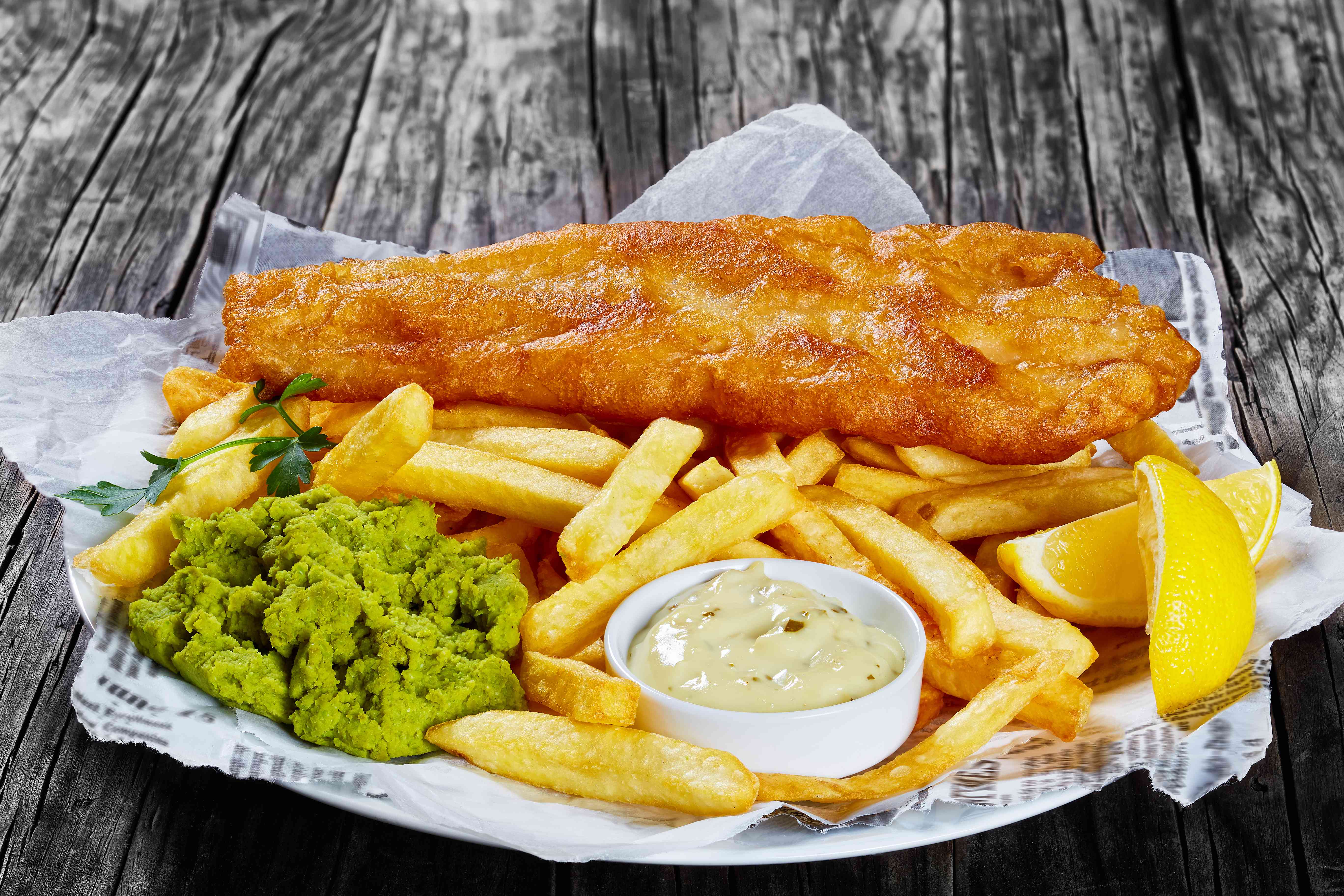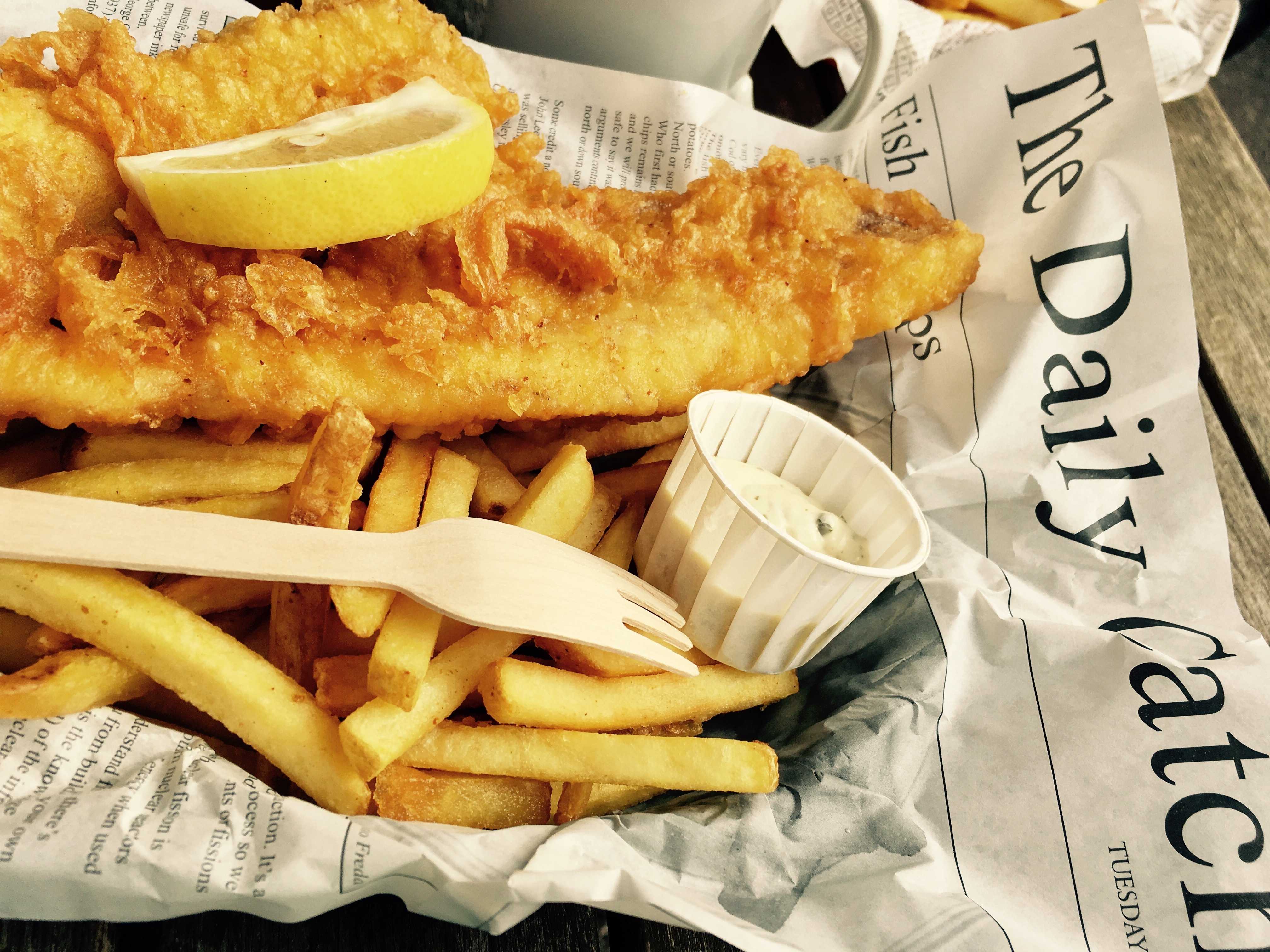In a country where fish and chips is an iconic part of our culture, it’s understandable that cities, regions and even families are split when it comes to one simple question: “What’s the best vinegar for fish and chips?”. In this article, we tackle the two top contenders – white vinegar and malt vinegar, to see which reigns supreme.
What is malt vinegar?
Malt vinegar is a beloved condiment of the British Isles that dates back several hundred years, and it’s easy to see why it’s so popular. Originally a by-product of ale that fermented past its drinkable stage, malt vinegar has a nutty, toasted flavour from the malted barley and the bacterial processes that happen during the fermentation stage, making the final straw-coloured product sweeter and milder than other kinds of vinegar. In the UK, the most popular brands of malt vinegar include Sarson’s, Heinz, London Pub, Crosse & Blackwell, and Chip Mate.
How is malt vinegar made?
To make malt vinegar, you start by germinating grains of barley in water so that they start to sprout. The grains are then dried to create malt. This malt is brewed into ale and then fermented a second time to create vinegar. The vinegar is then aged, similar to the process for making brandy or whiskey, and tasted at various periods until it reaches the right level of flavour. Distilled malt vinegar is a further refined malt vinegar that is clear and more acidic in taste.
Is malt vinegar the same as white vinegar?
No. White vinegar is a more purified vinegar that is made by fermenting acetic acid in water. White vinegar is colourless, simple, and easy to make, and is often the more affordable option. Malt vinegar is sweeter, milder on the palate, and less acidic than white vinegar. It has a more complex, nutty flavour and a warm caramel colour thanks to the fermented barley. It takes longer to make and requires more skill, which is why it’s usually more expensive to buy.
Is malt vinegar gluten-free?
Because it contains barley, malt vinegar is not considered to be gluten-free. However, it has around 20 parts per million (ppm) of gluten or less, which is generally considered to be suitable for people who are gluten intolerant or suffer from celiac disease. If you want to entirely avoid gluten, it’s better to choose white vinegar rather than malt vinegar.
Is malt vinegar good for you?
Malt vinegar isn’t just tasty, it’s well-known for its health benefits too, which include:
- Improved blood sugar levels in patients with Type 2 Diabetes
- Helping to control the oxidation of unhealthy cholesterol to help prevent heart attacks and strokes
- Adding probiotics to your diet to help support a healthy gut biome
- Supporting weight loss as a low-calorie condiment or dressing
Of course, as with any food or condiment, it’s not a miracle cure. The best way to enjoy your meals and eat your way to good health is to use sensible portion control and eat a wide range of fresh, seasonal foods.
5 ways malt vinegar is used in cooking
Malt vinegar is a great staple to have in the kitchen, as it has plenty of delicious uses!
- Salad dressings – Add flavour to salad by mixing one tablespoon of malt vinegar to one tablespoon of olive oil for an easy dressing for green salads, bean salad, coleslaw, and potato salad. For even more flavour, add fresh herbs and spices!
- Pickling – Make your own pickled onions, gherkins, pickled carrots and capers to create tasty vegetable preserves.
- Condiment – Of course, it goes without saying that splashing malt vinegar on fish and chips helps to add flavour and cut the greasiness of the dish.
- Chutney – Malt vinegar adds complexity and depth of flavour to fruit chutneys, including peach, apple, and onion chutney.
- Glazes, marinades and brines – Use malt vinegar for brining meat, making marinades and glazing roasts to add a sweeter, nutty flavour. For an especially punchy meat marinade, mix malt vinegar with whiskey, honey, Worcester sauce and a bit of brown sugar.
As fans of the traditional fish and chips dinner, we have to say that malt vinegar is our choice as the best vinegar for fish and chips. The milder, sweet flavour balances perfectly with the saltiness of the food, with the acid cutting gently through the crispy, fried texture. If you’re as passionate about fresh, tasty fish and chips as we are, you may be interested in Frymax, the leading vegetable oil for the fish frying trade for over 60 years. Fully refined and deodorised, Frymax is the frying oil of choice for any chippy looking for sustainable, long lasting vegetable oil. Get in touch with our team today to learn more.
Become a Frymax member today to gain access to exclusive content, expert frying advice and the chance to enter our fantastic competitions.






